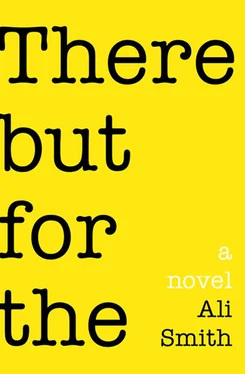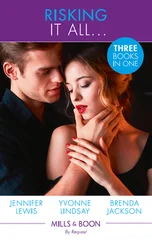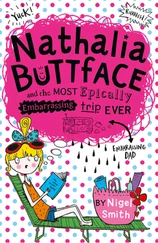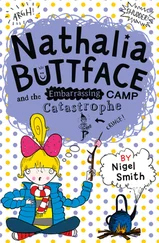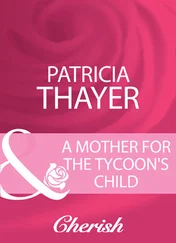To be what? Hannah said.
So is Ira Gershwin something to do with the more famous George Gershwin? Caroline says.
She was his wife, wasn’t she? Jen says coming in with plates balanced on her arm.
He was his younger brother, Mark says.
It comes into his head how much Faye loved songs. He had quite forgotten how much.
It does sound like a girl’s name, though, doesn’t it, Ira? Caroline is saying.
There’s no way I’d ever call a daughter that, Hannah says.
Then she tells them all the story of the daughter of a woman she knows at her Parent Teachers Association who woke up one day in the middle of a field in Cornwall wearing new clothes. She didn’t remember buying the clothes. She had no idea what she was doing in a field in Cornwall or how she’d got there. The last she remembered was being out for a drink on a Saturday night after work. The next thing it was Tuesday morning. And she was in a field miles from home. And she was dressed in new clothes. And when she looked at her credit card she’d bought them on that. But she didn’t remember any of it.
Selective memory after shopping spree, Hugo says. Endemic among women. Sorry. Is that a bit sexist?
Yes, Miles says smiling.
Think so, do you, Miles? Hugo says.
He closes his eyes at the same time as he turns his head in Miles’s direction.
It’s not funny, Hannah says. It’s true. It really happened in really real life.
Oh my God, Caroline says. Had anything … happened to her? You know, anything (she nods towards the child) — bad?
That’s the thing. It didn’t seem to have, Hannah said. But she didn’t know. She couldn’t know for sure.
Had anything good happened to her? the child says.
Much more interesting, Miles says.
Ha! Bernice says.
Easy to go to the bad, Miles says. I’m always much more interested in things going to the good.
Room’s full of pansies, Richard says not quite under his breath.
Pansies, the child says, are for thoughts. Rosemary is for remembrance.
She couldn’t, Hannah says. Remember. Anything. But, the thing is, nothing at all seemed to have happened to her.
So it’s a pointless story, Richard says.
Hannah looks crushed.
No, it’s a philosophical conundrum, Bernice says. How would you ever trust yourself again, or anything about yourself, or the world, or you in the world?
I know, Hannah says. It’s awful.
You just would trust yourself, I think, the child says.
Bernice smiles across the table at her.
Optimist, Terence says.
Bet it was her husband’s credit card, Hugo says. Or is that sexist, Miles, and is it offensive, and are any of the women round the table offended by it, or is it just you who can’t take a joke?
Not very, only mildly, maybe about as sexist as a quite benign 1970s sitcom, Miles says. But yes, I think it definitely is.
As a what, sorry? Hugo says.
He narrows his eyes. He is getting quite drunk. Caroline cuts in, suddenly earnest, about the Viewfinder she’s bought on eBay, exactly the same as the one she had when she was a child, which is why she bought it.
It was lovely to feel the little click of the black lever thing, it felt exactly the same as when I was small, except, of course, smaller, she says. I also got online a set of the Viewfinder pictures of the Eames house for Hugo, they’re like designers—
They’re not like designers, they are designers, Hugo says.
Caroline rolls her eyes.
— and some Womble pictures for me, she says, because that’s what I had when I was that age. And when the package came and I opened it and took it out, the Viewfinder, it felt much smaller in my hands. Funny to think of my own hands, you know, so much smaller. I never thought it would be the Wombles that would reveal that to me. Sometimes we find out in the strangest ways how fragile we are, don’t we? Mark, do you know what I mean?
Mark has been feeling a steady mental pressure on him coming from Caroline all night. He doesn’t know whether he is creating it or she is. He suspects they both are. He knows Caroline most probably doesn’t really know about Hugo and him; he knows at the same time that her subconscious will know everything there is to know. Now the whole table is waiting to hear from him about fragility.
He takes a deep breath.
He starts telling a story about when he was taking a taxi between a couple of small towns, for work, and about how the taxi driver had a picture of the Virgin Mary tucked into his sunshield, and four differently scented Magic Tree air fresheners plus another Glade air freshener, all in the one car. He is about to tell them what the taxi driver said to him, that he’d pick up anyone, anyone at all, he’d pick up gays, blacks, Jews, Asians, Muslims, druggies, he wasn’t judgemental, except there was a pervert he knew about, who dressed in women’s clothes, and there was a paedophile, and he knew where each of them lived in this small town, and he reserved the right not to pick them up because he didn’t want people like that in his cab, and also he refused to take gyppos, the so-called travelling people could find their own means of so-called travel, far as he was concerned. As he said it Mark, belted in in the back seat, had watched the holy water glint inside the plastic bubble next to the Virgin Mary and had wondered if the holy water was selective too, and if that’s what God was these days, and whether everybody now simply had a private god who sanctioned his or her own choices about who he or she would pick up in a cab.
But here at the dinner table, with everybody listening, he loses confidence halfway through and finishes his story at the fifth air freshener.
Plus a Glade air freshener. For luck, he says.
Hugo looks bored. Richard looks furious. The women laugh politely.
Didn’t like the smell of people, that person, Bernice says.
Or the smell of himself, maybe, Miles says.
Both, Bernice says.
Richard picks up on the detail about the Virgin in the sunshield and he and Hannah take turns telling, all the time giggling like children, the story of their local lady vicar coming round to visit them to talk about something Hannah is doing with her Christian Young Mothers group at the church, and how embarrassing it was when this vicar suddenly just started praying, there in their lounge, in front of the tea and the biscuits, sitting there offering thanks to God.
Mark can’t concentrate on it because he has seen Miles do something strange; he has slipped the smaller of the two salt cellars, after using it lightly over his omelette and couscous, down under the table. Nobody else has noticed. Now they’re all talking about the free market.
A false balance is a bomination to the Lord, but a just weight is his delight, the child says in a sonorous voice.
He doesn’t mean Greenwich Market, Brooke, Bernice says. He means the trade market, the global business market.
The whole world, Richard says. It’s, well, a more or less borderless world. And that’s as it should be.
Except for the borders where they check your passport for hours, the child’s small voice says from the other end of the table.
Yes, but everywhere needs some defence against people just coming in and overrunning the place with their terrorisms or their deficiencies, eh, sweetheart, Richard says.
That’s right, Terence says. Got to keep all those bad refugees out. The ones looking for a better life.
Couldn’t agree more, Richard says. Humankind has needed fortifications since the start of humankind started.
And all this time since the start of the start of humankind we’ve needed little helicopters with cameras in, so we can see over our neighbours’ fortifications, Terence says. It’s a triumph of civilization.
Читать дальше
